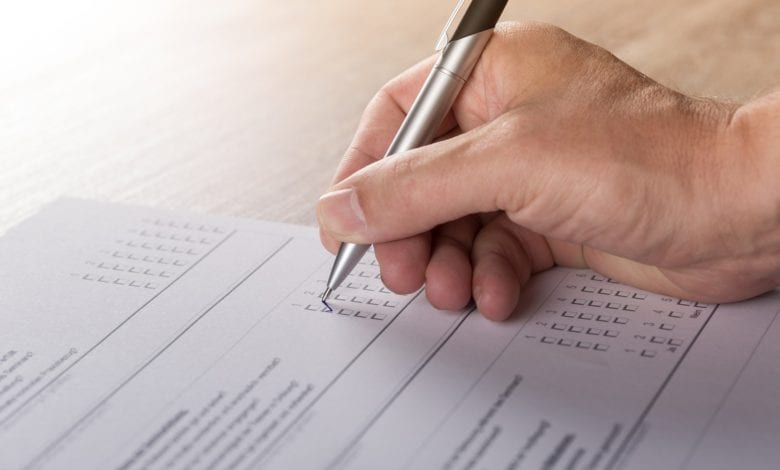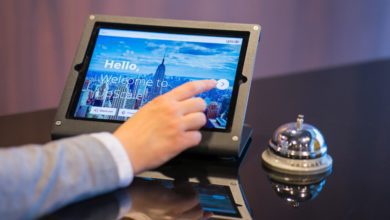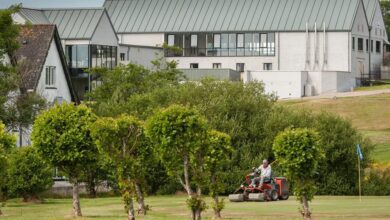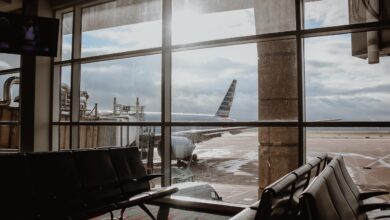Do self-certification schemes work?

If we look back six to eight weeks, the sector was at a standstill, there was little clarity around when and how businesses could reopen, and we were all champing at the bit to get business going again to recoup some of the sector’s lost potential.
The quickest route to achieving this was the very many self-certification schemes that cropped up for operators, providing a checklist approach to preparing your business for reopening and awarding a ‘quality’ marque to ‘reassure’ guests of their safety should they decide to visit.
There is/was obviously a place for these schemes – at least in the short-term – but as we adjust to the modern face of hospitality can we honestly say that self-certification is really a suitable long-term strategy? I think that is something that we all have to question!
So, what is right about self-certification?
There are several things that self-certification gets ‘right’ if you want to look at it that way. The criteria are published and consistent, there is no delay in obtaining the marque, they provide some semblance of consumer awareness and confidence, and they provide a checklist for you to help make changes to your property and operations.
These are inarguably good things, but the schemes are not without their pitfalls too, and as we look beyond the immediate term, we have an ethical responsibility to question their long-term value and relevance.
So, what is wrong with self-certification?
The problem with self-certification is that it is intrinsically unenforceable, and it relies on both sides being equally robust and scrupulous, which I am sad to say they often aren’t. Self-cert provides a somewhat consistent framework – the questions and criteria don’t change – but relies on the operator to interpret these in the way that they were intended, and to do so with the same purpose for which they were intended.
What’s more, the criteria seek to standardise something which is inherently non-standard, which means that every time they are applied, they are applied in a slightly different way, to a completely unique set of circumstances and business footprint. Can we really draw parallels therefore between businesses A, B, and C who have all been through the checklist, but all have completely different operations? For me, this is one of the very, very major flaws.
Looking around the sector, there are always market leaders who go above and beyond, and I have no doubt are going above and beyond the self-certification, and interpreting it in the best interests of their guests, but there are also plenty of ‘only just’ or even downright illegitimate operators who aren’t. This is another challenge of self-certification; the good operators will always be good, and ironically probably don’t need to self-certify to be safe, while the bad operators will always cut corners and self-certification certainly won’t be a deterrent.
You might believe I exaggerate, but in just six weeks of operating, there have already been reports of fraudulent use of the AA Covid Confident scheme, reports of worrying standards for guest safety in some of the operators, and I myself have seen some of these self-certified businesses that are anything but clean, even after they’ve apparently applied the standards. We’ve somehow collectively created an environment where it is acceptable to ‘mark your own homework’, but how long is that truly sustainable, and can we really argue it’s the right or ethical thing to do?
When we look beyond the first month of operating again and consider our ethical and commercial responsibilities to our staff and our guests, we’re talking about something potentially life and death and we have to be entirely certain that what we are doing is enough. Although many may think I am being dramatic, what Covid has done, is serve as a prompt to consider our very real impact on our guests’ lives.
What’s more, experts are warning of the growing risk of pandemics, and in my view, if we, as a sector, are to survive what could potentially be a future dominated by incidents beyond our control, then we need to go beyond doing ‘just enough’ and become the flexible, adaptable, future-proof sector that I know we have the potential to be. For me, that means ditching self-certification, and introducing robust, inspected schemes which hold the whole sector to account, are truly enforceable, and provide a measure of self-regulation within the sector.
Quality in Tourism is a national operation with offices around the country, and while we have adopted as many video and telephone conferences as is feasibly allowed, I have still had to unavoidably spend four nights away from home in the last four weeks. As is my wont, I like to switch between corporate and independent operators each time, helping me to keep my finger on the pulse of what is happening in the industry and what the standards are really like.
Every one of the businesses that I chose to visit were self-certified either ‘Good to Go’ or had their own corporate standards, and only one in four would have passed my expected standards for guests. In one room, the TV remote was sealed in a plastic bag to indicate that it had been ‘cleaned’, yet many of the buttons were caked with grime and gunk around the edges – a breeding ground for nasties. In another, I watched the ‘cleaning’ routine in the common areas and while it was certainly more robust than previous measures, it missed some of the highest-risk areas a guest will touch, like the edges of the dining room chair when they’re trying to get in and out, and the underside of tables for the same reason.
These are the basics, but as they’re not specifically outlined in the self-certification checklist, they are easily, if unintentionally missed. What that means in reality however is that these operators are missing germ-filled hotspots, and whatever their intentions, they are inadvertently contributing to the potential spread of the virus. Needless to say, I went a bit OTT on the hand washing and sanitiser while I was staying, and went through it with the respective managers before I left!
I think that there will also be a fallout with guests in the not too distant future. Self-certification is not necessarily transparent and can confuse customers. It is usually assumed that a logo or accreditation has substance, and therefore many will inherently assume properties are being visited and checked; that someone somewhere is enforcing the application of robust standards. How will they react when the inevitable happens and they find out that properties are literally marking their own homework? The buzz word of the moment is trust and it’s vital for our industry and its future, but we are potentially set on a path that unravels the advances that have been made in terms of reputation.
For me, the potential of a certified, inspected scheme goes beyond just the pandemic. Yes, Covid has been a catalyst, but it is also an opportunity to catapult our very innovative and amazing industry into the next era of its life. Robust schemes go way beyond public health concerns, helping to create and enforce minimum standards across the sector, build and deliver guest trust, eliminate unscrupulous, opportunist businesses, and level the playing field between operators. For me, these can only be a good thing, and they don’t need to be cost- or time-prohibitive to achieve. In fact, the frameworks already exist; it is the shift from voluntary to mandatory that is needed!
At Quality in Tourism, we started this journey over three years ago when we established our Safe, Clean & LegalTM scheme to independently assess businesses. Our goal was to ensure that operators meet minimum standards for guest safety and cleanliness and to provide some credibility in a somewhat unregulated marketplace. We foresaw a future where guests would demand more from the operators than they did then – although I will admit we didn’t predict a pandemic of this severity – and we wanted to support businesses to know that they are doing everything they can and should be to support their guests.
These include but are not limited to cleanliness and hygiene practices, building and commercial regulations and fairness and transparency of practice, among others. This is not a new thing, but something which we have been working on for years and which has a Primary Authority Partnership with Cornwall Council and is ratified by the Secretary of State.
The scheme is already being sought by operators and agencies including partnerships with Visit Cornwall, Silverdoor, Unique Home Stays and the STAA, and is in consideration in English and Scottish Parliament for mandatory roll-out across the sector at the moment.
In light of the COVID-19 pandemic specifically, we have added additional COVID-19 specific guidance notes, and templates for risk assessment around protecting the customer and protecting the staff, to help ensure they consistently meet quality standards in these times.
It is my wish to see the industry move away from self-certification practices in the sector, to one of mandatory, fit-for-purpose accountability, that levels the playing field between operators and supersedes all the varied and outdated legislative burdens which don’t impact on businesses equally. Then, we will be left with an industry that is free to innovate and adapt, and is already equipped to handle future incidents like these, but in doing so is not seeing the erosion of quality in the same way that we see it today.
Quality in Tourism assess thousands of accommodation providers globally each year. They are supporting businesses to reopen with the Safe, Clean & LegalTM marque, assessing businesses against all of their responsibilities including post-COVID checks. Over 10,464 businesses are reopening using the scheme, which 73% of consumers have said reassures them about the property and 68% of guests have said it will give them the confidence to book.
To find out more about their assessments, gradings and the future of registration Safe, Clean & LegalTM, please visit www.qualityintourism.com.









